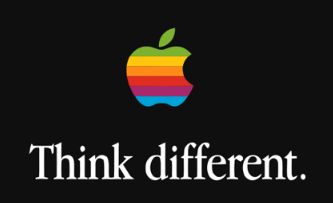- within International Law, Environment and Finance and Banking topic(s)
We frequently discuss the requirement that trade mark owners must use their registered trade marks. We do this because the consequences of failing to adhere to the so-called "use it or lose it" rule can result in a loss of trade mark rights.
"Think Different" is a slogan trade mark that is associated with Apple. The slogan was coined around 1997 when Apple started using it in an advertising campaign. Apple registered the slogan in the USA, the EU, and elsewhere.

When Swatch subsequently adopted and used the slogan "Tick Different", Apple sued Swatch in a Swiss court for trade mark infringement. The court dismissed the case on the basis that the marks Think Different and Tick Different would not be confused. Swatch retaliated by applying for the cancellation of Apple's trade mark registrations for Think Different on the basis of non-use for a period of at least five years.
In 2018 the Cancellation Division of the European Union Intellectual Property Office (EUIPO) ruled that Apple's registrations should be cancelled on the basis of non-use. It said that "the occasional use of the contested marks on the applicant's website during the relevant period to commemorate famous people or special events was an isolated and ephemeral use."
Apple took this decision on appeal. The General Court, however, upheld the cancellation. It said that the earlier decision was "not contradicted by a body of evidence aimed at proving that they have been put to genuine use". It went on to categorise the use that Apple had made of the term Think Different over recent years as occasional blips to "commemorate famous people or special events". There had, said the court, been no proper trade mark use of the expression Think Different for a decade.
The Think Different case ties in closely with an article that we wrote recently that dealt with the issue of so-called "dead brands" and particularly, the question of whether there is any merit in preserving them. Referencing brands such as Polaroid, Toys "R" Us, and Caltex, the article discussed the fact that brands that are no longer in use may still have traction and brand equity. We discussed the fact that it might be worth keeping trade mark registrations for such brands alive where possible, and in some cases even filing fresh trade mark applications.
We have also previously discussed proof of trade mark use. Certain authorities are very strict when it comes to proof of use. For example, we've seen how affidavits from company employees attesting to trade mark use have been rejected for lack of independence, and how brochures and posters establishing use might be rejected without proof of where they appeared and who they were seen by. We've seen how a print-out of a company website has been rejected as proof of use of the brand because there was no evidence of who had seen it and how a Wikipedia page was rejected as proof of use on the basis that Wikipedia can be edited. That said, South African courts have proved to be a little less fastidious in this area.
South African courts have used the expression "clear and unambiguous factual evidence" to describe what is required. They've said that evidence will be rejected if it is "not only vague to such an extent that it smacks of evasiveness, but is also contradictory". They have, however, also said that proof of a genuine attempt to launch a brand that ultimately fails commercially is still genuine use of the trade mark.
It is imperative for companies to have systems in place that monitor their brands so they know which are most relevant and important and that they keep record of the use of their brands so that they are readily able to submit proof of use that may be required. Irrespective of the size of the business, proof of use of its key brands should be kept.
Trade mark advisors should be able to guide a business on what type of evidence, showing use of its brands, should be kept.
The content of this article is intended to provide a general guide to the subject matter. Specialist advice should be sought about your specific circumstances.


